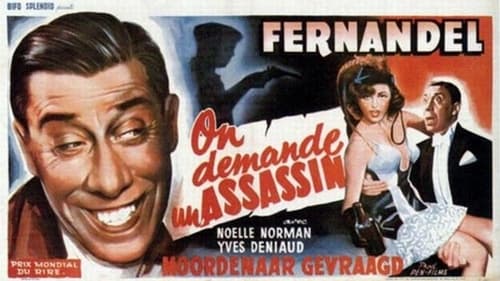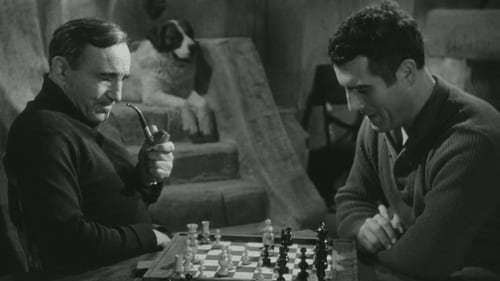
Maire Gimelet
Convinced that a wartime resistance heroine is innocent of a murder charge, Nap Rumbold, a solicitor / private detective travels to France searching for evidence to clear her name.

Charles Walter, a forestry contractor, has helped Noël Portal to start a new life. When Victor, the new foreman and Charles'wife's lover, is found murdered, everything points to the guilt of the deceived husband. To save his benefactor, Noël decides to accuse himself of the the crime. He is condemned to death.

The practice of Dr. Julien, a GP of Marseilles, consists mainly of drug-addicts. One day, one of his patient dies at his surgery and Julien yields to the temptation : he steals the dead man's money and hides the corpse in a trunk. But the whole thing is discovered and ... misinterpreted. The doctor is condemned for killing the junkie and sent to the Cayenne convict prison, from which he escapes. The Indians give him shelter and he is soon given the opportunity to return their good deed when a yellow fever epidemic strikes their tribe. A young woman helps to fight the disease and, thanks to her, Julien starts considering that a new life is possible for him.

A son of a family in debt decides to put an end to his life and calls on a professional killer to do so, who promises to kill him within forty-eight hours. However the next day, money, luck and love smile at her again. Then can begin an infernal hide-and-seek between the assassin and his victim.

Lucien Bonnet, Jean Vigneron's manservant, blackmails his boss, who is having an affair with Inès de Montalban, married to Ricardo. Vigneron pays the sum but Lucien is killed by an accomplice, Baruch. Everything seems to accuse Jean who, for fear of compromising Inès, prefers to keep mum. Fortunately, his innocence will be proved thanks to a surprise witness. The two lovers flee to Congo while the husband soon forgets them, finding comfort in debauchery.

A gang of drug pushers is rampant on the French Riviera. The police has been informed and arrests an accomplice who is about to collect the drugs dropped off from a yacht. This person happens to be a public figure of a nearby village...

Laurent meets Louvaine and brings her back to his island.

Madame Rose runs a seedy hotel in a suburb of Paris. Strong-minded but without the least moral scruple, she once killed her husband whose honesty was a hindrance to her business. Under a suspended sentence, she now indulges in smuggling. One day, Victor, one of her former accomplices hounded by the police, finds sanctuary with her. During a drinking spree, he has the bad idea to entrust to her a suitcase filled with bank notes, a loot with which Victor hopes to rebuild his life in South America. But Rose, lured by temptation, betrays Victor, who is arrested by the police. However, he manages to escape with only one thing in mind, to take revenge on Rose...

Casimir
What was it about opera diva Grace Moore that attracted the attention of filmdom's top directors? Moore's 1937 American movie vehicle When You're in Love had been directed by Josef Von Sternberg; two years later, her French starrer Louise was helmed by no less than Abel Gance, who a decade earlier had revolutionized the "historical epic" genre with the awesome Napoleon. There was, however, little that was revolutionary in this cinemadaption of Gustave Charpentier's opera. Moore plays Louise, a poor seamstress who is led astray by the rakish Julien (Georges Thill). After falling from grace (no pun intended), our heroine is rescued by her understanding father (Andre Pernet), who demonstrates his forgiveness by singing to her (it is, after all, an opera). Though it played to enthusiastic crowds in both London and Paris, Louise turned out to be Grace Moore's final film; conversely, Abel Gance continued to make commercial potboilers well into the 1970s.

Soldier Gilles Tenant
After serving in the trenches of World War I, Jean Diaz recoils with such horror that he renounces love and personal pleasure to immerse himself in scientific research, seeking a machine to prevent war. He thinks he has succeeded, but the government subverts his discovery, and Europe slides with seeming inevitability toward World War II. In desperation, Diaz summons the ghosts of the war dead from the graves and fields of France to give silent, accusing protest.








